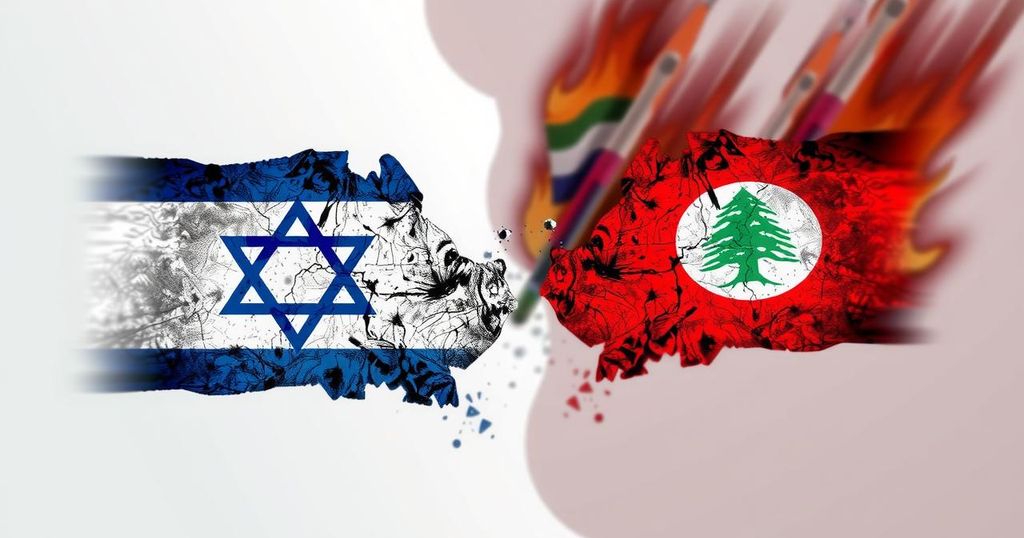The ceasefire agreement between Israel and Lebanon establishes a 60-day period for military withdrawal and repositioning. It aims to register compliance via a multi-national committee, although underlying complexities regarding Hezbollah’s influence and Israel’s security concerns remain. The ceasefire’s success hinges on the broader reconciliation of Lebanon’s political factions for sustainable peace.
The recent ceasefire agreement between Israel and Lebanon marks a significant development following a protracted conflict. Under this accord, Israel plans a phased withdrawal of its military from southern Lebanon, while the Lebanese army will position itself along the border, and Hezbollah is set to relocate its heavy weaponry north of the Litani River. The ceasefire is intended to last for 60 days, allowing both sides to reassess and potentially stabilize the situation. Despite this hopeful framework, underlying tensions and regional rivalries complicate the outlook for lasting peace.
In the days preceding the ceasefire, hostilities escalated, with Hezbollah missile attacks on Israeli cities and Israeli airstrikes targeting Hezbollah leaders. Israel’s strategy aimed to exert negotiating pressure while maintaining its military presence, a move underscored by fears of losing U.S. diplomatic support. Prime Minister Netanyahu faces internal challenges from hardliners who criticize the ceasefire’s potential to enable Hezbollah to regroup and prepare for future conflicts. As Hezbollah navigates the complex political landscape, it is attempting to secure its influence amidst evolving regional dynamics.
The 60-day ceasefire is overseen by a multi-national committee tasked with ensuring compliance and preventing additional arms from reaching Hezbollah. If adhered to, the agreement could facilitate a new relationship between the two nations, although the power balance within Lebanon remains precarious. Hezbollah’s deep-rooted military and political presence complicates any outright withdrawal, raising concerns about potential power vacuums and future conflicts.
Hezbollah’s acceptance of the ceasefire reflects growing internal pressures, particularly after its aggressive stance in support of Gaza sparked a severe Israeli response. Despite suffering considerable losses, Hezbollah retains a functional military apparatus and navigates a shifting political landscape characterized by divisions stemming from Lebanon’s civil war. The group’s long-standing ties to Iran exacerbate these tensions, as Iran’s investment has fortified Hezbollah’s position in Lebanon.
While the ceasefire may provide Lebanon with an opportunity to strengthen its institutions and diminish Hezbollah’s grip on power, the threat from Hezbollah persists, as does the complexity of Lebanon’s internal dynamics. Stable governance requires inclusive participation from all factions, including Hezbollah; exclusion risks alienation and instability, reminiscent of Lebanon’s tumultuous past. The resolution’s sustainability will ultimately depend on the collective will of the Lebanese people to embrace a lasting peace over a mere cessation of hostilities.
The ceasefire between Israel and Lebanon emerges against a backdrop of escalating conflicts, regional rivalries, and geopolitical complexities influenced by the longstanding tension between Israel and Iran. Lebanon has historically been a battleground for proxy conflicts, deeply entwined with Iranian interests and the operational frameworks of Hezbollah. Since the outbreak of violence on October 8, 2023, the humanitarian and economic toll on Lebanon propelled negotiations for a ceasefire, seeking to provide relief and lay groundwork for possible political resolutions.
While the ceasefire agreement proposes a temporary cessation of hostilities, its potential for fostering lasting peace in Lebanon remains uncertain. The agreement may afford Lebanon a chance to solidify its political framework and diminish Hezbollah’s influence, yet the persistence of regional threats and internal divisions poses significant challenges. Resolving these conflicts necessitates broad consensus among Lebanon’s diverse factions, which is crucial for ensuring stability and preventing the resurgence of violence.
Original Source: www.dailynewsegypt.com







